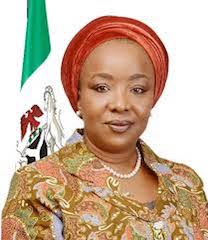Foreign News
Plastic Pollution to Double by 2030 – UNEP

Plastic pollution in oceans and other bodies of water has continued to grow sharply and could more than double by 2030, according to an assessment released on Thursday by the UN Environment Programme (UNEP).
The report highlights dire consequences for health, the economy, biodiversity and the climate.
It also says a drastic reduction in unnecessary, avoidable and problematic plastic is crucial to addressing the global pollution crisis overall.
It proposes an accelerated transition from fossil fuels to renewable energies, the removal of subsidies and a shift toward more circular approaches to help reduce plastic waste at the needed scale.
Titled “From Pollution to Solution: A global assessment of marine litter and plastic pollution,” the report shows that there is a growing threat across all ecosystems, from source to sea.
But it also shows that there is the know-how to reverse the mounting crisis, provided the political will is there, and urgent action is taken.
The document is being released 10 days ahead of the start of the crucial UN Climate Conference, COP26, stressing that plastics are a climate problem as well.
Addressing solutions to the problem, the authors highlighted chances of recycling out of the plastic pollution crisis.
They warned against damaging alternatives, such as bio-based or biodegradable plastics, which currently posed a threat similar to conventional plastics.
The report looks at critical market failures, such as the low price of virgin fossil fuel feedstocks (any renewable biological material that can be used directly as a fuel) compared to recycled materials, disjointed efforts in informal and formal plastic waste management, and the lack of consensus on global solutions.
The assessment calls for immediate reduction in plastic production and consumption, and encourages a transformation across the whole value chain.
It also asks for investments in far more robust and effective monitoring systems to identify the sources, scale and fate of plastic, a shift to circular approaches and more alternatives are necessary.
Executive Director of UNEP, Inger Andersen, said “this assessment provides the strongest scientific argument to date for the urgency to act, and for collective action to protect and restore our oceans, from source to sea.”
She said that a major concern is what happens with breakdown products, such as microplastics and chemical additives, which are known to be toxic and hazardous to human and wildlife health and ecosystems.
“The speed at which ocean plastic pollution is capturing public attention is encouraging. It is vital that we use this momentum to focus on the opportunities for a clean, healthy and resilient ocean,’’ Andersen said.
Currently, plastic accounts for 85 per cent of all marine litter.
By 2040, it will nearly triple, adding 23-37 million metric tons of waste into the ocean per year. This means about 50kg of plastic per meter of coastline.
Because of this, all marine life, from plankton and shellfish; to birds, turtles and mammals; faces the grave risk of toxification, behavioral disorder, starvation and suffocation.
The human body is similarly vulnerable. Plastics are ingested through seafood, drinks and even common salt. They also penetrate the skin and are inhaled when suspended in the air.
In water sources, this type of pollution can cause hormonal changes, developmental disorders, reproductive abnormalities and even cancer.
According to the report, there are also significant consequences for the global economy.
Globally, when accounting for impacts on tourism, fisheries and aquaculture, together with the price of projects such as clean-ups, the costs were estimated to be six to 19 billion dollars per year, during 2018.
By 2040, there could be a 100 billion dollars annual financial risk for businesses if governments require them to cover waste management costs. It can also lead to a rise in illegal domestic and international waste disposal.
The report will inform discussions at the UN Environment Assembly in 2022, where countries will come together to decide the way forward for more global cooperation. (NAN)
Foreign News
Thousands Protest in Pakistan After Drone Strike Kills 4 Children

Thousands of people in north-west Pakistan on Tuesday blocked a highway by placing the coffins of four children who were killed by a suspected drone strike.
The protests in the Mir Ali area of North Waziristan region began earlier on Monday after a family home was hit, local resident Mohamed Jamal Dawar said.
It is not clear who was behind the incident.
Local activist Zahid Wazir said the drone was operated by the Pakistani military.
He said the home was likely mistaken as a hideout used by Islamist militants.
Pakistani intelligence officials said the explosives were fired by a quadcopter that was being operated by the Taliban militants to target a nearby military post, but that it missed the target.
An independent verification was not possible as the region is inaccessible to outsiders.
Activists of a local rights group, the Pashtun Tahafuz Movement, which is against the militarisation of the region by both the military and the Pakistani Taliban, vowed to continue the protest.
“We will continue to demand justice for our kids,” Wazir said.
The Pakistani military and Islamist militants have been fighting each other in the region for more than two decades.
More than 80,000 Pakistanis, an overwhelming majority of civilians, have lost their lives in years of violence. (dpa/NAN)
Foreign News
Man Executed in Indiana For Killing Police Officer

Benjamin Ritchie, 45, had been on Indiana’s death row since 2002, when he was convicted of killing Beech Grove Police Officer Bill Toney during a chase on foot.
Benjamin Ritchie, 45, had been on Indiana’s death row since 2002, when he was convicted of killing Beech Grove Police Officer Bill Toney during a chase on foot.
Ritchie was executed at the Indiana State Prison in Michigan City, according to Indiana Department of Correction officials.
IDOC said in a statement that the process started shortly after midnight and Ritchie was pronounced dead at 12:46 a.m.
Ritchie’s last meal was from the Olive Garden and he expressed love, support and peace for his friends and family, according to the statement.
Under state law, he was allowed five witnesses at his execution, which included his attorney Steve Schutte, who told reporters he had a limited view of the process.
“I couldn’t see his face. He was lying flat by that time,” Schutte said. “He sat up, twitched, laid back down.”
The process was carried out hours after the U.S. Supreme Court declined to take the case, exhausting all of Ritchie’s legal options to fight the death sentence.
Dozens of people, both anti-death penalty advocates and supporters of Toney, stood outside the prison until early Tuesday.
Indiana resumed executions in December after a year’s long hiatus due to a scarcity of lethal injection drugs nationwide.
Prison officials provided photos of the execution chamber before Joseph Corcoran’s execution, showing a space that looks like an operating room with a gurney, fluorescent lighting and an adjacent viewing room.
They’ve since offered few other details.
Among the 27 states with death penalty laws, Indiana is one of two that bars media witnesses.
The other, Wyoming, has conducted one execution in the last half-century.
The Associated Press and other media organisations filed a federal lawsuit in Indiana seeking media access, but a federal judge denied a preliminary injunction last week that would have allowed journalists to witness Ritchie’s execution and future ones.
The judge found that barring the news media doesn’t violate the First Amendment nor does it single out the news media for unequal treatment.
The execution in Indiana is among 12 scheduled in eight states this year.
Ritchie’s execution and two others in Texas and Tennessee will be carried out this week.
Ritchie was 20 when he and others stole a van in Beech Grove, near Indianapolis.
He then fired at Toney during a foot chase, killing him.
At the time Ritchie was on probation from a 1998 burglary conviction.
Toney, 31, had worked at the Beech Grove Police Department for two years.
The married father of two was the first officer of the small department to be killed by gunfire in the line of duty. (AP/NAN)
Foreign News
WHO Member States Adopt New Pandemic Treaty

Member states of the World Health Organisation (WHO) on Tuesday adopted a new pandemic treaty aimed at avoiding the panic and disarray seen during the COVID-19 crisis.
The agreement was accepted without a formal vote on the second day of the members’ annual World Health Assembly in Geneva.
As the conference chair asked whether there were any objections, silence followed, prompting him to declare the treaty adopted by consensus.
The treaty outlines measures for coordinated procurement of protective equipment during future pandemics, enhanced monitoring of diseases in both animals and humans.
There should also be the transfer of medical technology to ensure that medicines and vaccines can be produced in low-income countries.
However, several contentious details remain unresolved and are set to be negotiated separately over the next year as part of an annex to the treaty.
These include a new mechanism to accelerate vaccine production and ensure equitable distribution to poorer nations. (dpa/NAN)




















